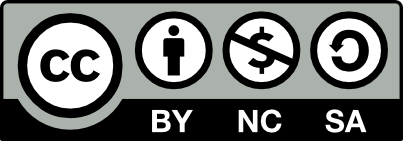Please use this identifier to cite or link to this item:
http://hdl.handle.net/10609/89326
| Title: | Inhibitory control failures and blunted cortisol response to psychosocial stress in amphetamine consumers after 6 months of abstinence |
| Author: | Benitez López, Yermein Redolar-Ripoll, Diego Ruvalcaba Delgadillo, Yaveth Jáuregui Huerta, Fernando |
| Others: | Universidad de Guadalajara Universitat Oberta de Catalunya. Estudis de Ciències de la Salut |
| Citation: | Benitez-López, Y., Redolar-Ripoll, D., Ruvalcaba-Delgadillo, Y. & Jáuregui-Huerta, F. (2018). Inhibitory control failures and blunted cortisol response to psychosocial stress in amphetamine consumers after 6 months of abstinence. Journal of Research in Medical Sciences. doi: 10.4103/jrms.JRMS_1148_17 |
| Abstract: | Amphetamine abuse has been conceived as an addictive illness where stress regulation and inhibitory control may be crucial factors determining chronicity and relapse. Since amphetamine consumption may disrupt the cerebral systems regulating inhibition and stress behaviors, deregulation on these systems may be expected even after long-term abstinence periods. The present study aimed to evaluate the ability of abstinent amphetamine consumers to regulate stress parameters and to inhibit cognitive patterns under the acute trier social stress test (TSST) paradigm. Materials and Methods, a cohort study was conducted in a sample of 44 young individuals (average age: 24.6 years). The sample included 22 amphetamine consumers recruited from an addiction treatment center and 22 healthy nonconsumers belonging to the same sociodemographic conditions. Both groups were exposed to the TSST once the consumers completed 6 months in abstinence. To evaluate stress reactivity, we collected five saliva samples distributed before, during, and after stress exposure. Inhibitory capacity was also assessed before and after stress using the Stroop and d2 cancellation tests. Results, under stress conditions, cortisol measures were significantly lower in amphetamine consumers (1105.34 ± 756.958) than in healthy nonconsumers (1771.86 ± 1174.248) P = 0.022. Without stress, amphetamine consumers also showed lower cortisol values (1027.61 ± 709.8) than nonconsumers (1844.21 ± 1099.15) P = 0.016. Regarding inhibitory capacity, stress also was associated to consumer's lower scores on the Stroop (5.17 ± 8.34 vs. 10.58 ± 7.83) P = 0.032 and d2 tests (190.27 ± 29.47 vs. 218.00 ± 38.08) P = 0.010. Conclusion: We concluded that both the stress regulatory system and executive function system (attentional/inhibitory control) represent key vulnerability conditions to the long-term effect of compulsive amphetamine consumption. |
| Keywords: | abstinence stress executive functions cortisol amphetamine cortisol |
| DOI: | 10.4103/jrms.JRMS_1148_17 |
| Document type: | info:eu-repo/semantics/article |
| Version: | info:eu-repo/semantics/publishedVersion |
| Issue Date: | 19-Dec-2018 |
| Publication license: | https://creativecommons.org/licenses/by-nc-sa/4.0/  |
| Appears in Collections: | Articles Articles cientÍfics |
Files in This Item:
| File | Description | Size | Format | |
|---|---|---|---|---|
| Blunted cortisol response.pdf | 841,82 kB | Adobe PDF |  View/Open |
Share:
 Google Scholar
Google Scholar
 Microsoft Academic
Microsoft Academic
This item is licensed under a Creative Commons License


